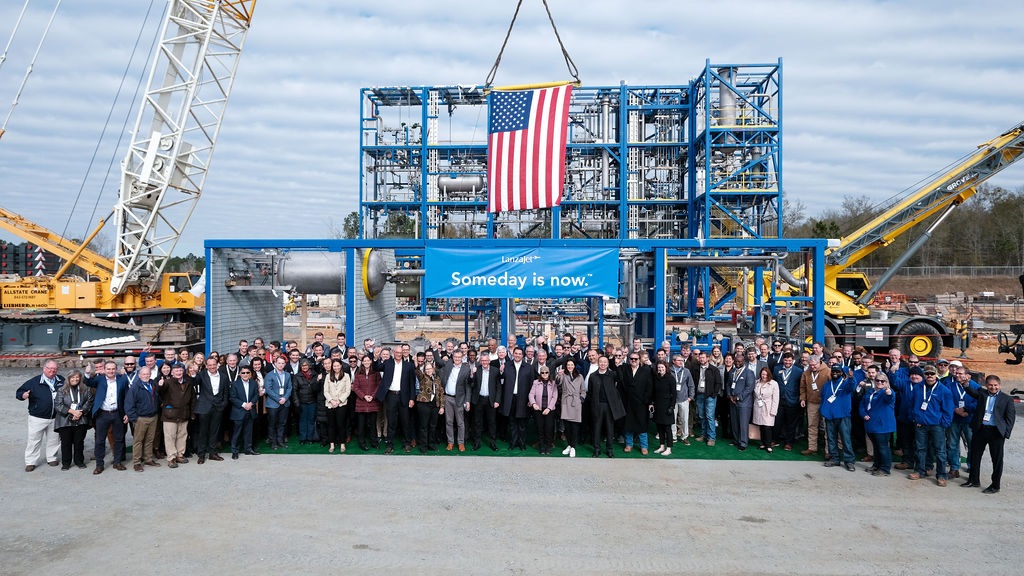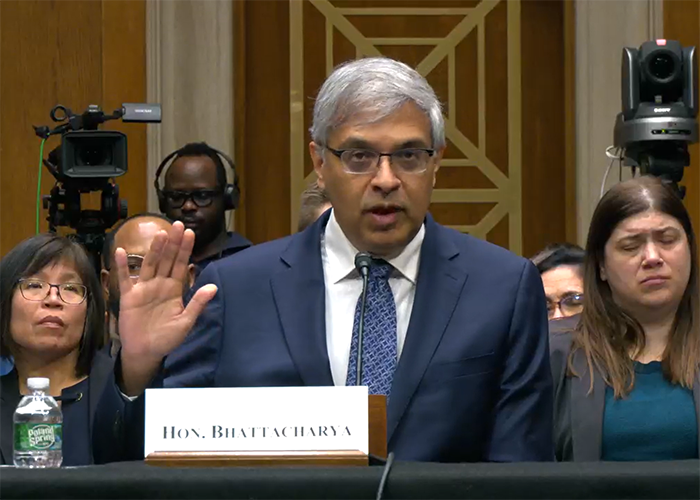LanzaJet, a leading sustainable fuels technology company and sustainable fuels producer, announced a major construction milestone in December at its ethanol-based alcohol-to-jet sustainable aviation fuel (SAF) production plant, the first of its kind in the world.
Per the company’s release, construction is on track for a launch this year and its new technology—developed in partnership with the U.S. Energy Department’s Pacific Northwest National Laboratory—to convert ethanol into a drop-in SAF has been built and is now being installed at the company’s Freedom Pines Fuels facility in Soperton, Ga.
“Freedom Pines Fuels highlights a way to harness local waste carbon and support a just energy transition for a better future for all. This facility is a foundation stone for a strong new SAF economy in the United States and the world,” said Jennifer Holmgren, Chief Executive Officer, LanzaTech.
LanzaJet said that “using a range of sustainable, low carbon intensity ethanol, including from waste-based feedstocks” the facility will produce “10 million gallons of SAF and renewable diesel per year from ethanol,” doubling the current SAF production in the U.S.
The company’s ambition is to eventually produce one billion gallons of SAF a year, supporting the U.S. government’s SAF Grand Challenge and providing sufficient SAF by 2050 to meet the aviation industry’s decarbonization goal of net-zero emissions. The SAF Grand Challenge targets 3 billion gallons of U.S. SAF production a year by 2030.
Thanks to a $50 million grant provided by Bill Gates’ sustainable energy accelerator Breakthrough Energy, LanzaJet’s Freedom Pines facility will produce SAF that costs the same as fossil fuel but involves much lower greenhouse gas emissions, Fortune reported.
As a “drop-in” SAF, the fuel could be used by existing airliners, immediately helping reduce the emissions that drive climate change, because “aviation accounts for approximately 2-3% of global greenhouse gas emissions annually,” according to LanzaJet, a member of the Biotechnology Innovation Organization (BIO).
“We must be able to travel and see family and friends without compromising our values and our planet. We are showing the world that we can create domestic supplies of sustainable fuel, create secure supply chains, create new jobs, and support local industry,” Holmgren added.
SAF receiving greater attention
BIO members Gevo, Velocys, and Virent are among other biotech companies that are making advances in SAFs, working with airlines and the government to increase SAF production and use, according to Bio.News.
With biofuels receiving greater attention, “Big Oil” is also participating in the switch to petroleum alternatives. In the latest step in the UK energy giant’s expansion into lower-carbon fuels, BP announced last year its plans to purchase a Houston-based business that “captures waste emissions from landfills and farms and turns them into biogas.”
International airlines—including British Airways, Delta, and United—are also increasingly interested in “greener travel,” and have already allocated $17 billion to “forward-purchasing agreements for sustainable aviation fuel.”
The U.S. Department of Energy (DOE) last year unveiled the government-wide strategy to scale up “new technologies to manufacture sustainable aviation fuels (SAFs) throughout the U.S. aircraft industry,” but more government support is needed.
BIO has long advocated for increased SAF support, including tax credits, and was one of 77 organizations calling for “a new, long-term, technology- and feedstock-neutral tax incentive for sustainable aviation fuel” in a letter to U.S. House and Senate leadership.




